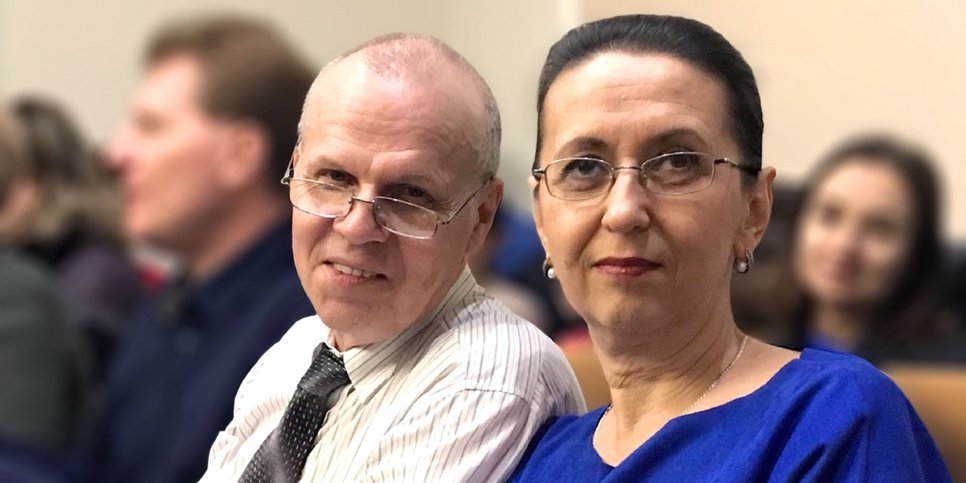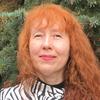In the photo: Vladimir and Tatyana Alushkin
In the photo: Vladimir and Tatyana Alushkin
Vladimir Alushkin was sentenced to 6 years in a real colony by the Penza court for his faith. What was he guilty of?
Penza RegionOn December 13, 2019, the Leninsky District Court of Penza announced a verdict to 6 citizens whose faith was not liked by the security forces. Vladimir Alushkin was arrested in the courtroom. His wife, Tatiana, and their co-religionists Galiya Olkhova, Denis Timoshin, Andrey Magliv and Vladimir Kulyasov were given suspended sentences of 2 years.
"Our hearts go out to the six Jehovah's Witnesses convicted today, including Vladimir Alushkin and his wife, Tatiana," said Yaroslav Sivulsky of the European Association of Jehovah's Witnesses, "Vladimir's 6-year prison sentence is one of the harshest sentences handed down to Jehovah's Witnesses since the ban in 2017. Unfortunately, such sentences are becoming the norm in modern Russia. It is especially significant that the Russian authorities continue to stubbornly ignore unanimous criticism from authoritative international organizations, governments and human rights activists. The current state of religious freedom in Russia is reminiscent of the worst periods of Soviet history, but, as we know, even under the yoke of the Soviet machine, Jehovah's Witnesses did not abandon their faith. Similarly, since the ban in 2017, tens of thousands of our brothers and sisters in Russia have remained strong in their faith despite the constant threat of arrest and imprisonment. We have no doubt that their faith will continue to be strong."
How did it all begin? In September 2017, the Investigative Committee for the Penza Region decided to increase crime detection rates at the expense of innocent Jehovah's Witnesses. Instead of protecting Penza from dangerous criminals, the department threw reserves for operational-search measures against believers.
On July 15, 2018, groups of law enforcement officers led by Major Alexander Bukov simultaneously broke into the apartments of civilians in Penza. After interrogations, which lasted well after midnight, criminal cases were opened against four believers under various parts of Article 282.2 of the Criminal Code of the Russian Federation – participation in the activities of an extremist organization or organization thereof. Vladimir Alushkin was sent to pre-trial detention center No. 1 in the Penza region for 184 days. Vladimir Kulyasov, Andrey Magliv and Denis Timoshin were placed under house arrest for the same period.
A year later, on July 10, 2019, Roman Tanchenko, a judge of the Leninsky District Court of Penza, accepted the criminal case for his proceedings. At the same time, he extended the detention of Vladimir Alushkin, Vladimir Kulyasov, Andrey Magliv and Denis Timoshin under house arrest.
According to the verdict of the court, Vladimir Alushkin will go to a colony for 6 years, his wife, Tatiana, was sentenced to 2 years of suspended imprisonment. Galia Olkhova, Denis Timoshin, Andrey Magliv, Vladimir Kulyasov were also sentenced to 2 years of suspended imprisonment. Lawyers intend to appeal the verdict.
It is noteworthy that the court openly ignored the resolution of the UN Working Group on Arbitrary Detention, issued on the complaint of Vladimir Alushkin. His arrest was declared illegal, and what was happening to Jehovah's Witnesses in Russia was called "systemic and institutionalized persecution of Jehovah's Witnesses." Russian and foreign leaders and organizations unanimously condemn the persecution of Jehovah's Witnesses in Russia. These include the Commissioner for Human Rights in the Russian Federation, the Human Rights Council under the President of the Russian Federation, the President of the Russian Federation, prominent public figures of Russia, the European Union External Action Service, observers of the Parliamentary Assembly of the Council of Europe, the UN Working Group on Arbitrary Detention, the Office of the UN High Commissioner for Human Rights. The Russian government has repeatedly stated that the decisions of the Russian courts on the liquidation and prohibition of organizations of Jehovah's Witnesses "do not assess the doctrine of Jehovah's Witnesses, do not contain a restriction or prohibition to practice the above teachings individually."






